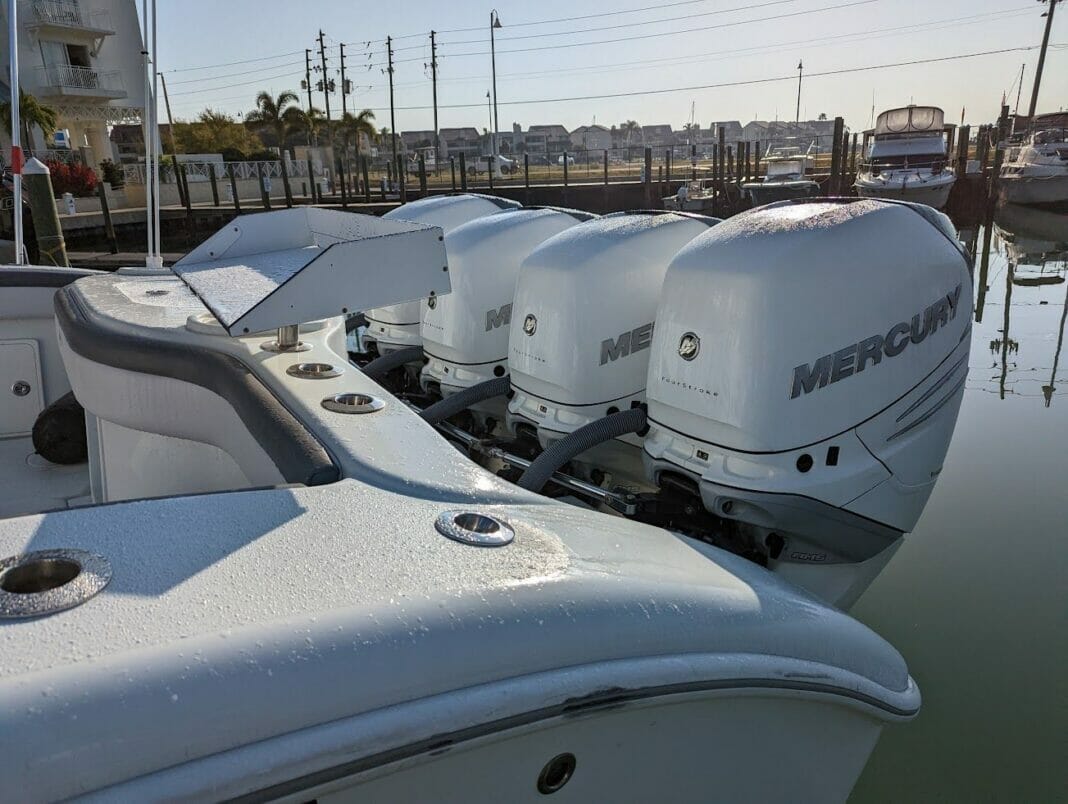When choosing the perfect boat, understanding the difference between inboard and outboard engines is essential. An engine is the boat’s power source, providing propulsion and maneuverability that affect the boating experience.
This article will discuss the differences between inboard and outboard engines and their advantages and disadvantages, helping you decide on your next boat purchase.
Inboard Engines
As the name implies, inboard engines are inside the boat’s hull. These engines are usually found on larger boats and provide a more center-balanced weight distribution. They are connected to the boat’s propeller via a transmission and drive shaft system.
Advantages of Inboard Engines
-
Improved Balance and Stability: As inboard engines are located in the center of the boat, they provide better weight distribution, resulting in improved stability and balance on the water.
-
Reduced Noise and Vibration: Inboard engines are well-insulated within the boat’s hull, reducing noise and vibration compared to their outboard counterparts.
-
Designed for Heavy-duty Use: Inboard engines are ideal for larger boats and are designed to handle heavy use, making them well-suited for commercial or long-distance applications.
-
Better Maneuverability: Inboard engines, when used with “V-drive” systems, provide improved maneuverability and handling, particularly in reverse.
Disadvantages of Inboard Engines
-
Complex Installation and Maintenance: Inboard engines can be more challenging to install and maintain due to their location within the hull. Additionally, they often require more space for the engine and transmission systems.
-
Higher Cost: Inboard engines are generally more expensive compared to outboard motors.
-
Reduced Fuel Efficiency: Inboard engines are heavier and consume more fuel than outboard engines.
Outboard Engines
Outboard engines are mounted externally on the boat’s transom (the flat back part of the boat). These engines are popular on small boats, such as fishing and recreational vessels. They come in various sizes and horsepower options, making them versatile and customizable to the boat’s specific needs.
Advantages of Outboard Engines
-
Easy Installation and Maintenance: With their external positioning, outboard engines offer simple access for installation and maintenance tasks. It makes repairs and general upkeep more convenient.
-
Fuel Efficiency: Outboard engines are generally lighter and more fuel-efficient compared to inboard engines, making them an eco-friendly option.
-
Space Optimization: Outboard engines leave the interior of the boat free for storage or other uses by taking up minimal space. This could be beneficial for small boats with limited room.
-
Easy Replacement: Since outboard engines are easier to remove and install, updating or replacing the engine is a more straightforward process.
-
Shallower Draft: Boats with outboard engines can navigate more shallow waters, as the motor can be tilted up, reducing the boat’s draft.
Disadvantages of Outboard Engines
-
Reduced Stability and Balance: As outboard engines are mounted externally, they can impact the boat’s balance and stability compared to inboard engines.
-
Increased Noise and Vibration: Outboard engines tend to produce more noise and vibration as they are not insulated within the boat’s hull.
-
Reduced Maneuverability: Outboard engines may provide a different level of maneuverability than inboard engines with V-drive systems.
Conclusion
The choice between inboard and outboard engines largely depends on the intended use and size of the boat. Inboard engines offer better stability and maneuverability for larger boats or those looking for a quieter, more comfortable cruising experience.
On the other hand, outboard engines provide a flexible, fuel-efficient, and easy-to-maintain option for smaller boats that prioritize space optimization and shallow water capabilities. Understanding the differences between inboard and outboard engines will aid in your decision-making process and help you choose the best engine for your boating needs.


